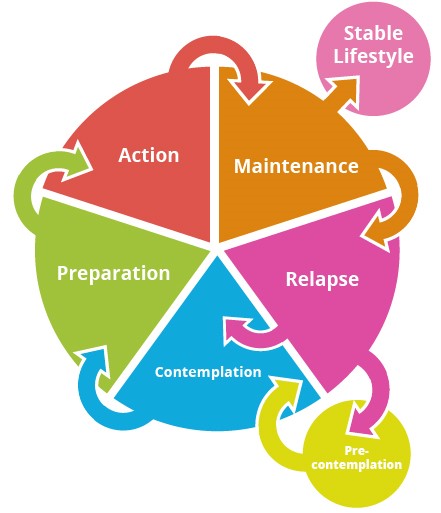Drugs and/or alcohol often play a significant role in many people’s lives in these days.
Having a cold beer after work has become synonymous with Australian culture, and large numbers of people of all ages use recreational drugs regularly.
The specific reasons people use substances are varied and complex, however almost all are driven by one simple fact: It feels good.
Equally as true is that the feeling is temporary and it can be easy to get caught in a cycle of chasing that feeling – until it begins to become a problem and impact negatively on the person’s life. This can lead to dependence on the substance, or full-blown addiction.
Further, the way in which substances affect people is unpredictable, and can result in damaging, sometimes anti-social behaviours, which can lead to other negative outcomes for the person (including criminal proceedings in some cases).
When Substance Use Becomes a Problem
There are a few signs that indicate that substances such as drugs and alcohol might be negatively impacting your life. These include:
- Needing to consume a substance to feel okay;
- Having to increase the amount of the substance consumed to gain the same affect;
- Consuming more of a substance than usual when stressed;
- Not being able to say no to consuming the substance when it is offered;
- Missing work due to being under the influence or hungover;
- Involvement in criminal activity due to alcohol or drug related factors;
- Becoming in debt due to paying for substances;
- Liver damage, brain damage or other health conditions due to substance use;
- Existing mental health disorders (such as anxiety or depression) getting worse;
- Problems with sleeping;
- Losing interest in things you once liked to do.
Most people who use substances can be taught to be aware of the physical, behavioural and psychological changes that can occur when using substances, and with further assistance can develop insight into what stage of change they are currently at.
By identifying which stage of change a person decides to seek help, at it becomes possible to target strategies to assist them to move forward towards recovery or other positive outcomes. The Stages of Change is based on the Transtheoretical model of change (TTM).
Stages of Change for Substance Abuse
- Pre-contemplation: The person isn’t thinking about changing their substance use habits – the behaviour is not acknowledged at this point, or seen to be an issue.
- Contemplation: The person realises that there is a problem, they have acknowledged that there is an issue related to their consumption of substances, but are not sure or ready to make a change yet.
- Preparation: The person has made a personal commitment to making changes and is considering their options on how best to address their concerns with their substance use.
- Action: The person believes they have the ability to change their behaviours, and is using different strategies and techniques in order to adjust, reduce consumption etc.
- Maintenance: The person is able to refrain from the negative substance use behaviours. They are now comfortable and accustomed to the new changed behaviour and are able to avoid temptations which would return them to the problematic consumption they initially presented with.
Sometimes a person who is in the Action or Maintenance stage may relapse and return to the damaging substance use behaviours. It is important to understand that this is common and can happen many times in the course of someone’s recovery. A relapse should be seen as a learning opportunity, and provides a good point of intervention to allow for the identification of the factors which led to the relapse, and the development of protective strategies moving forward.
Treatment for Substance Abuse
People experiencing substance abuse move between the stages of change at varying rates, depending on a number of factors, including the severity of their dependence, substance of choice, environmental considerations and the presence of any other co-morbid mental health concerns.
In general however with extra support and treatment, the longevity of their progression can be reduced and they can reduce the negative outcomes associated with dependence at a quicker rate.
Treatment of substance abuse should take a holistic or combination approach, specific to the individual’s needs, and could include combinations of:
- Motivational interviewing – Assists the person to develop motivation and an acknowledgment around problem behaviours, which helps them to progress through the stages of change towards maintenance.
- Cognitive Behavioural Therapy (CBT) – Focuses on thoughts as well as behaviours. CBT can be effective when developing relapse prevention strategies and during skill building exercises – when it is necessary to challenge negative/unhelpful thoughts that arise.
- Psycho-education – The way in which substances affect the human body can be different for every individual. It is important to learn about the personal experience of the individual, in order to inform and empower them to better understand how to address their specific substance use concerns.
- Medication – In severe cases it can be dangerous to attempt to reduce consumption of certain substances too quickly, or without the assistance of prescribed medication. It is important to discuss individual circumstances in depth with both a General Practitioner and Psychologist in order to inform the appropriate medications.
 Author: Shannon Barton, B Sc (Psych), M Org Psych, Cert IV Correctional Practice.
Author: Shannon Barton, B Sc (Psych), M Org Psych, Cert IV Correctional Practice.
Shannon Barton is a Brisbane psychologist and accredited correctional services officer, with specific training in Cognitive Behavioural Therapy (CBT), Motivational Interviewing (MI) and Alcohol and Other Drugs (AOD) intervention and counselling.
Shannon is not taking bookings currently, however to make an appointment with a qualified clinician go to Online Booking. Alternatively, you can call Vision Psychology Brisbane on (07) 3088 5422.
